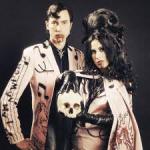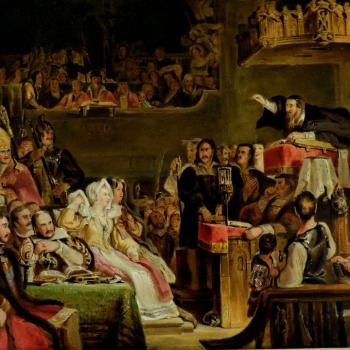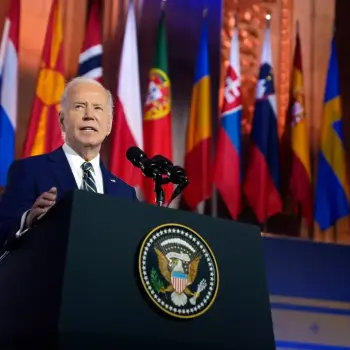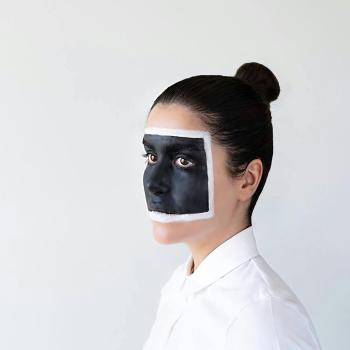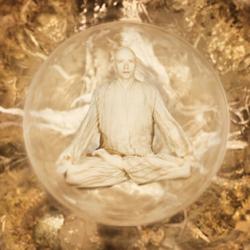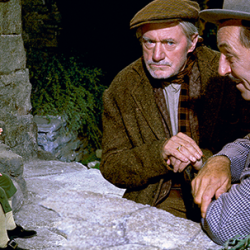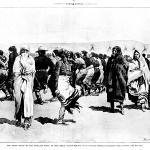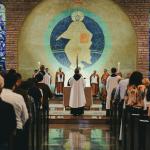This is the first of a two part entry on the occulture of Dune.
With Denis Villeneuve’s two-part adaptation of Frank Herbert’s 1965 novel Dune reaching over half a billion dollars in world-wide box office, it’s now become the definitive onscreen version of the sci-fi classic, with its majestic vistas, mind-blowing special effects, and top notch Hollywood cast. Hollywood and independent producers have always struggled to bring Herbert’s vision to the screen, reaching back to the early 70s with the never filmed adaptation by Alejandro Jodorowsky, itself the subject of a much lauded 2013 documentary.
Of course, the adaptation we’re most familiar with is David Lynch’s monstrosity from 1984, but there is also the hard to find miniseries produced by SyFy Channel in 2000, which improbably continued in 2003 with an adaptation of Herbert’s second and third novels, Dune Messiah and Children of Dune (to this day, remaining the only screen adaptations of these later books).
Villeneuve has somehow found that sweet spot of adaptation, mainly focusing on Paul’s journey as a political and cultural figure. Herbert’s original novel and its subsequent book series were steeped in religious, political, and economic themes and lessons. However, the esoteric aspects of the “Dune-iverse” are significant and the novel’s place in not only counter-cultural history, but in occultural history, is prominent. While Villeneuve’s adaptation merely hints at the religious and occult aspects of the novel, any fans of the novel series are familiar with just how strange Herbert’s imagination could get.
Sisters are Doing it for Themselves
One of the main esoteric aspects of the novel that Villeneuve did explore, somewhat, was the Bene Gesserit, the religious order of powerful women who have embedded themselves in the places of power throughout the Imperium. In addition to the promise that Villeneuve will complete Paul’s journey by adapting Dune Messiah, the second novel in Herbert’s series, we also have a MAX series to look forward to that will be focused on the Bene Gesserit. Dune: Prophecy, expected this fall, is loosely based on one of the many prequel trilogies that Herbert’s son Brian Herbert and his collaborator Kevin J. Anderson have written and published from the elder Herbert’s notes, since the late 90s. This particular trilogy, focusing on the great schools (Bene Gesserit, Mentats, Navigators), takes place 10,000 years before the main Dune novels, and chronicle a time just after the Butlerian Jihad, when humanity rises up against the thinking machine that had enslaved them.
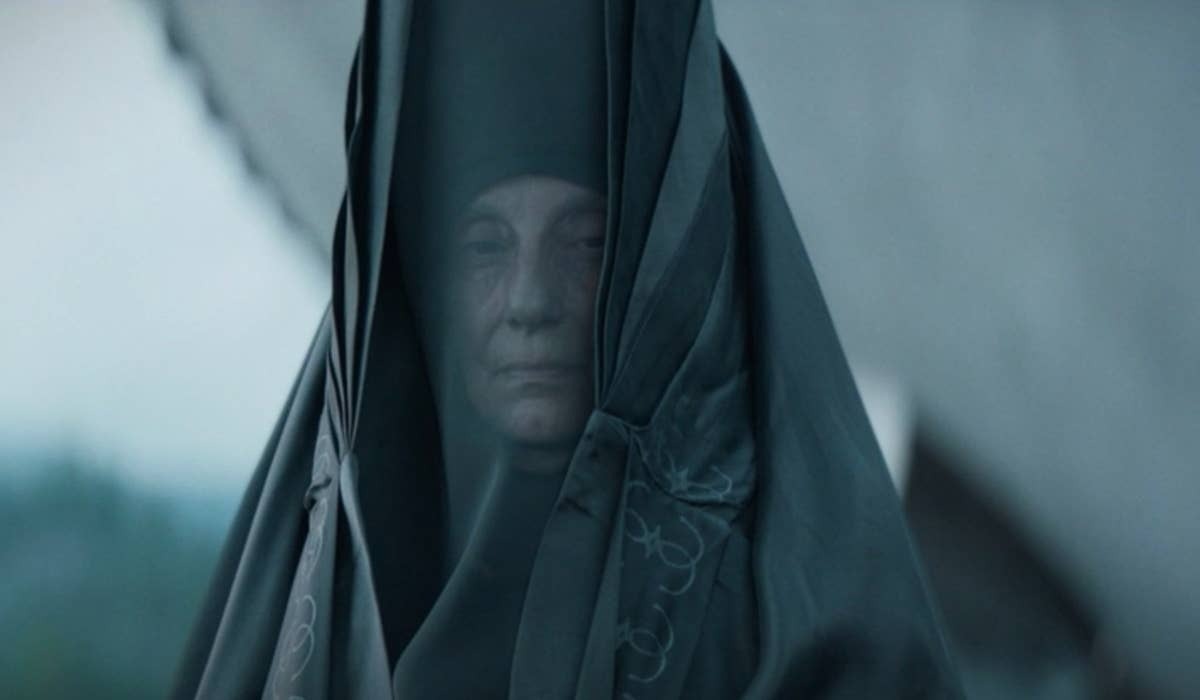
While Villeneuve is no longer directly involved with the series, he has stated his fascination with the story of the Bene Gesserit, who are a deeply secret order of women with fascinating powers and skills, including prophecy, lie detecting, extreme physical control, spycraft, and their most well-known trait, the power of the Voice, that compels its listeners to follow their commands unquestioningly. And in the Dune novels, they are also in charge of the massive breeding records of the Imperium (the vast kingdom of planets under the rule of the Emperor), and therefore are able to plan and scheme to get the genetic results they want in order to produce the prophesied “kwisatz haderach.” Translated to mean “the shortening of the way,” this male, messianic figure would bridge space and time with the power of prescience and ultimately lead humanity down the “golden path” to its enlightenment.
One aspect that makes the Reverend Mothers of the Bene Gesserit unique in their secret power is their ability to access Other Memory, the thoughts and consciousness of all Reverend Mothers who have come before them. Indeed, it is implied in the novels that the Voice gets its power from the unified voices of that ancestral line speaking as one, thus compelling others to follow its commands. It’s easy to see how the idea of powerful women, imbued with the magickal force of their ancestors, speaking as one voice, would be a frightening thing to readers in the mid-1960s. Some characters in the Dune novels, such as the main antagonists, the Harkonnens, refer to the Bene Gesserit as witches, and the implication is clear when they use the ‘w’ word as an epithet.
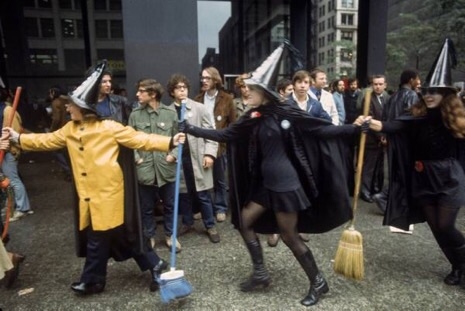
In our recent discussion of the Dune world on Pop Occulture, Lilith Dorsey and I imagined that the Bene Gesserit could be what happens when modern witches and Pagan women with an activist bent, such as the W.I.T.C.H. protestors at the University of Chicago and other areas in the 1960s, evolve into the echelons of power, many, many years in the future. Indeed, in Herbert’s far future, these women have the power to shape the very future of humanity, not only due to their vast influence with the Emperor and the Great Houses, but also through their breeding program.
Kwisatz Haderach, Think of Your Mother
Some scholars have noted that the breeding ambitions of the Bene Gesserit in Herbert’s novels mirror a long history of eugenics in the modern occult movement. On his website, philosopher Jules Evans focuses on the writings of several well-known members of the Golden Dawn, such as William Butler Yeats, Florence Farr, and of course, Aleister Crowley, despite his relatively brief membership. The members of the Golden Dawn considered themselves the spiritual elite, following Nietzschean ideals about the evolution of humanity.
While Dune was squarely placed in American and European counter-culture, it is easy to forget that before the late 1960s and the aforementioned collision of Paganism, witchcraft, and activism, modern occultism was unmistakably conservative, elitist, and aristocratic. Many Golden Dawn members were tried and true monarchists, who believed in hierarchical order, with the well-off, well-educated, and well-bred at the top. Thus, many members were interested in eugenics and wrote about their vision for perfecting humanity through magickal super-beings.
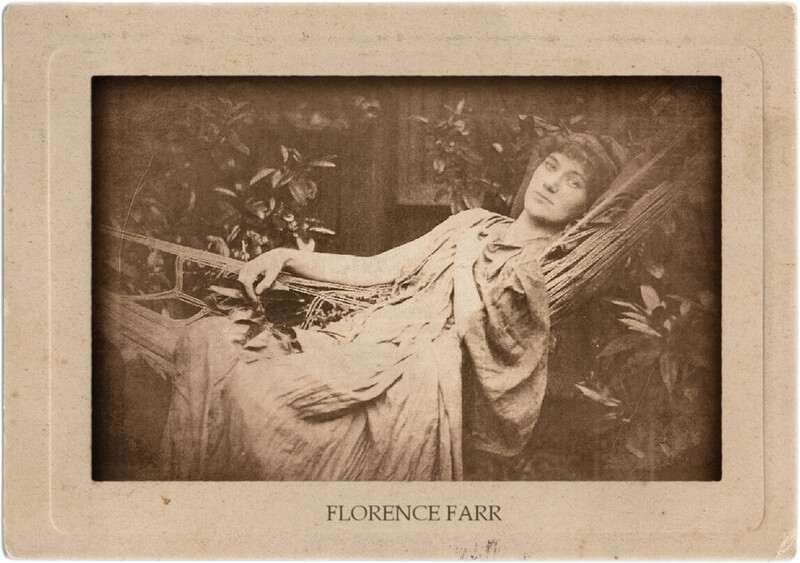
In one instance, Evans highlights the writings of initiate Florence Farr, daughter of William Farr, one of the early British scientists responsible for promoting eugenics in the mid-19th century. Dion Fortune, member of a later incarnation of the Golden Dawn, also wrote about the importance of selective breeding for such a purpose. Evans further makes a connection between the practice of sex magick to ensure that only the most highly evolved souls would incarnate, with the Bene Gesserit breeding program.
In his books, Frank Herbert was definitely concerned with the evolution of humanity – and certain ideas about how to achieve that evolution. But whether it’s the creation of the Kwisatz Haderach (the role that Paul Atreides ultimately fulfills) or his son’s future role as the God Emperor, forging the Golden Path, Herbert is ambivalent about whether these great leaps in evolution are actually good things. And in the books, they are often not good at all. And to the extreme. Though like anything with this complex material, it depends on how you look at it.
That Was Zen….
Herbert himself was a Catholic who eventually became a Zen Buddhist, and much has been written about how the Dune books, among other things, are critiques of organized religion. One aspect of Herbert’s critique does make it in the Villeneuve movies – the so-called Missionaria Protectiva, which is the propaganda program where legends of the Mahdi, the one who will lead the people to paradise, are seeded into indigenous cultures around the Imperium, especially the Fremen. Through this program, the Bene Gesserit prepare the people to accept the religious leader that they create for them. And in the film, we see how different factions are much more likely to believe and embrace that. Javier Bardem’s Stilgar represents that willingness to believe quite fully, leading to a rash of amusing memes about his gullibility and the passion of his belief.
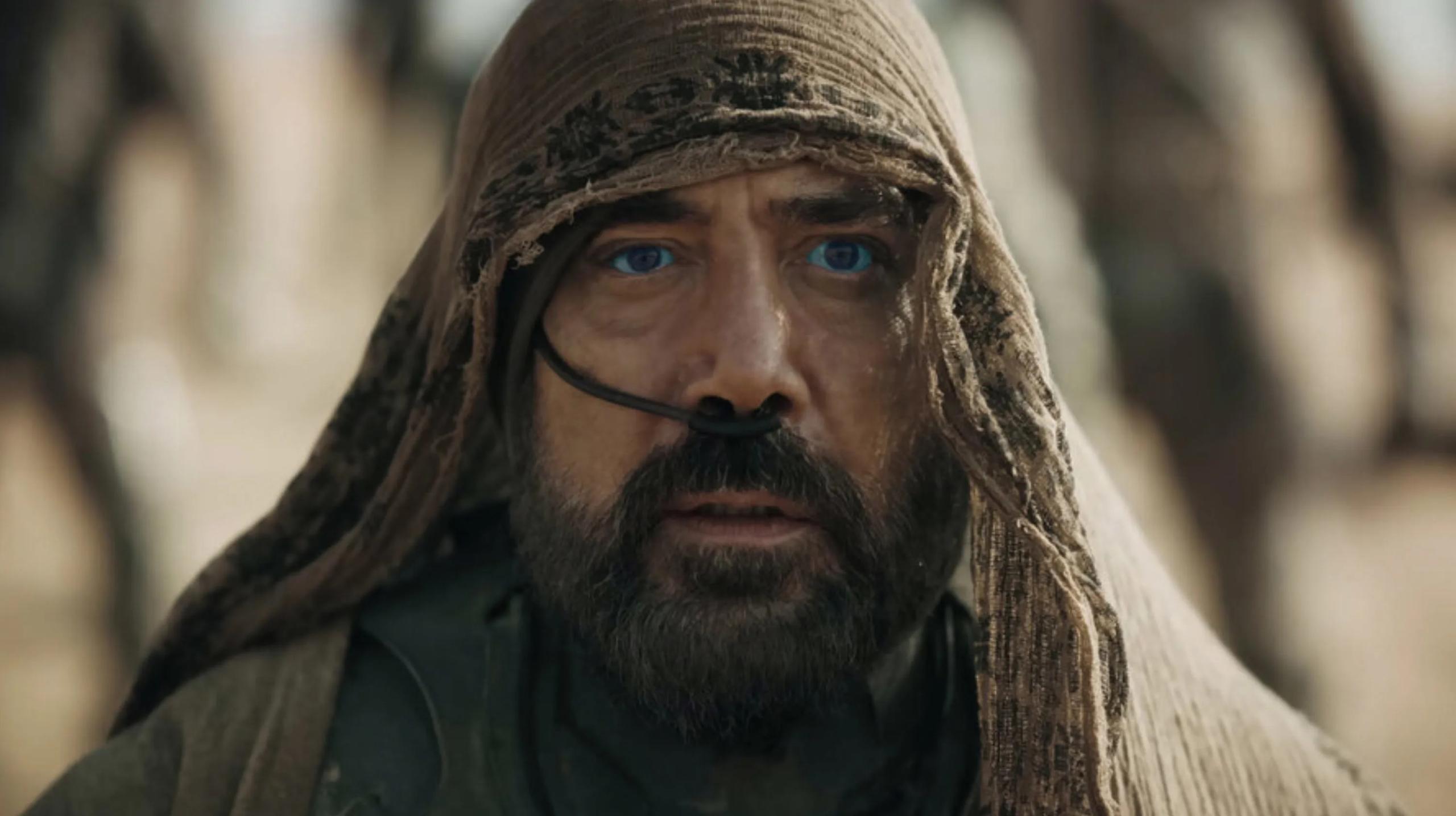
In the books, the Fremen themselves are descendants of the Zensunni religion, a strange hybrid of Zen Buddhism and Sunni Islam. Much has been made of Herbert’s vast use of Muslim terms and culture – and criticisms of the film for not casting MENA actors to play the Fremen have been discussed frequently. As the books and the films are very clearly critiques of Western imperialism, colonialism, and capitalism, it would seem that the Fremen were meant to represent MENA cultures, which was certainly never addressed in the earlier adaptations in which the Fremen were very, very white indeed.
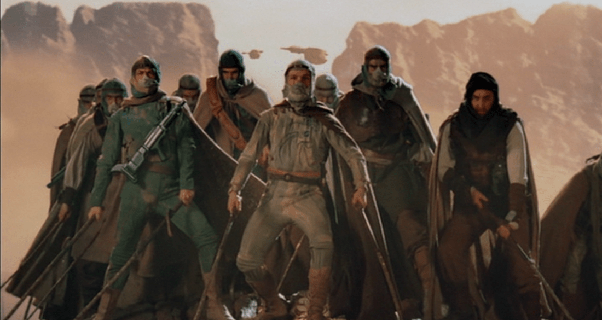
In Brian Herbert’s prequel novels set 10,000 years before the original Dune novels, we see that the ancestors of the Fremen were often ethnic minorities, but usually from planets unlucky enough to be raided by slavers, thus representing the downtrodden and marginalized everywhere. It is when they rise up against their masters and refuse to fight with humanity against the machines, that they escape to Arrakis in exile. It is that mixing of cultures that creates the hybrid religion of the Zensunnis.
Yet, similarly, the main religion of the Imperium, represented by a text called the Orange Catholic Bible, is a hybrid one. Again, in the prequel novels, it is established that a council decided to combine all the religions of Old Earth and synthesize them into one text, an explosive act that upends society and causes riots and violence for centuries, until many revisions later, the Orange Catholic Bible is the main scripture of the land.
Big Spice
Remaining with the prequels, oddly enough one of the strongest “religious” cults is what is known as the Butlerian movement, a holdover from the so-called Butlerian Jihad. Anti-technology Luddites who continue the fight against anything remotely resembling the long-defeated “thinking machines,” they are often shown as fanatics and often mindless mobs. And even though these novels were written prior to 2020, they are also very clearly against modern medicine and can easily be read as “anti-vax.” And one thing they are definitely against is the growing use of melange, the “spice” that is at the center of the Dune novels.
In part two, we’ll explore the implications of spice for human evolution and how various adaptations of the books have interpreted that aspect of Dune‘s occulture.


